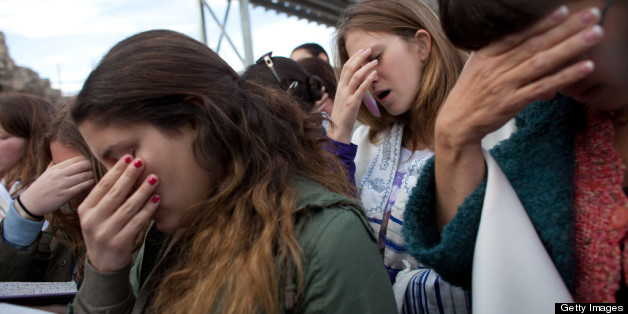The third modifier in the first line of the ואהבת/ve’ahavta is בכל מאדך/bekhol me’odekha, that you should love God with … what exactly?
In biblical as in modern Hebrew, מאד/me’od, typically is an adverb meaning very or exceedingly. This Shema passage from Deuteronomy 6 is a very rare case – there is only one other, 2 Kings 23:25 – where it takes a pronomial suffix and refers to a person’s capacity for “muchness.” Hence the King James version, and all its descendants, give us “love God with all your might.”
But the Talmudic Sages, as always, delight in wordplay. They offer two small riffs [Mishnah Berakhot 9.5] on this little word, each of which can affect how you daven the Shema.
First, they associate בכל מאדך/bekhol me’odekha with בכל ממונך/bekhol mammonekha, or “all your property.” You should love God not only with your feelings. You must turn your love into financial commitments, such as by giving tzedakah and supporting community institutions.
Next, they offer דבר אחר/davar acher, an alternative wordplay on the same phrase. Bekhol me’odekha might instead mean:
בכל מדה ומדה שהוא מודד לך הוי מודה לו/bekhol middah u’middah shehu moded lekha, haveimodeh lo, “meet gratefully whatever measure God metes out to you.”
This is delightful on the literary level. Say those Hebrew phrases out loud and you can hear the repeated letters M and D, to get a sense of the assonance, which I gestured toward in the translation by using the words meet, measure and metes.
But it might be challenging on the religious level. Can a person really be grateful and praise God regardless of whether they experience joy or pain, success or failure, weal or woe? In this Mishnah, the Sages tell prescribe that “people are bound to bless on the bad as they bless on the good.” Blessing for the good sounds proper. Blessing for the bad sounds borderline masochistic.
Yet I find this unexpectedly Zen moment for Judaism offers a valuable way to daven the Shema. Your life is not only its best moments, its successes, triumphs and achievements, for which it is natural to say Barukh Hashem and to love God. Your life is also your failure, pain and loss. If you think you only meet God or find holiness on happy days, actually that’s superficial and self-serving. Instead, as you daven the Shema, ask how to love bekhol me’odekhah, in all that befalls you, in moments of joy and times of suffering. Can you learn from your failures? Can you find beauty in life even as it troubles you? Can you connect to that impulse of compassion for yourself that the Zen master Thich Nhat Hanh describes as suffering better by knowing how to suffer? He encourages a meditative approach to addressing pain: Hello my dear pain. I know you are there and I will take care of you. You don’t need to be afraid.
I think about this religious attitude especially regarding a blessing that I, as a synagogue rabbi, find myself saying often, but which most people say only two or three times in their lives. When we experience a death, we say ברוך אתה ה’ … דיין האמת/Barukh Atah Adonai … Dayyan HaEmet.“Blessed are You, Master of the Cosmos, the judge of the truth.” I have never had to recite this for a personal loss, but during funerals, I lead mourners on this phrase often. I find it a very powerful gesture to say:
“This hurts terribly. And it is totally real. There is no escaping it. I can only pray to accept it with grace and love.” בכל מאודי/bekhol me’odi/“with all my might.”





